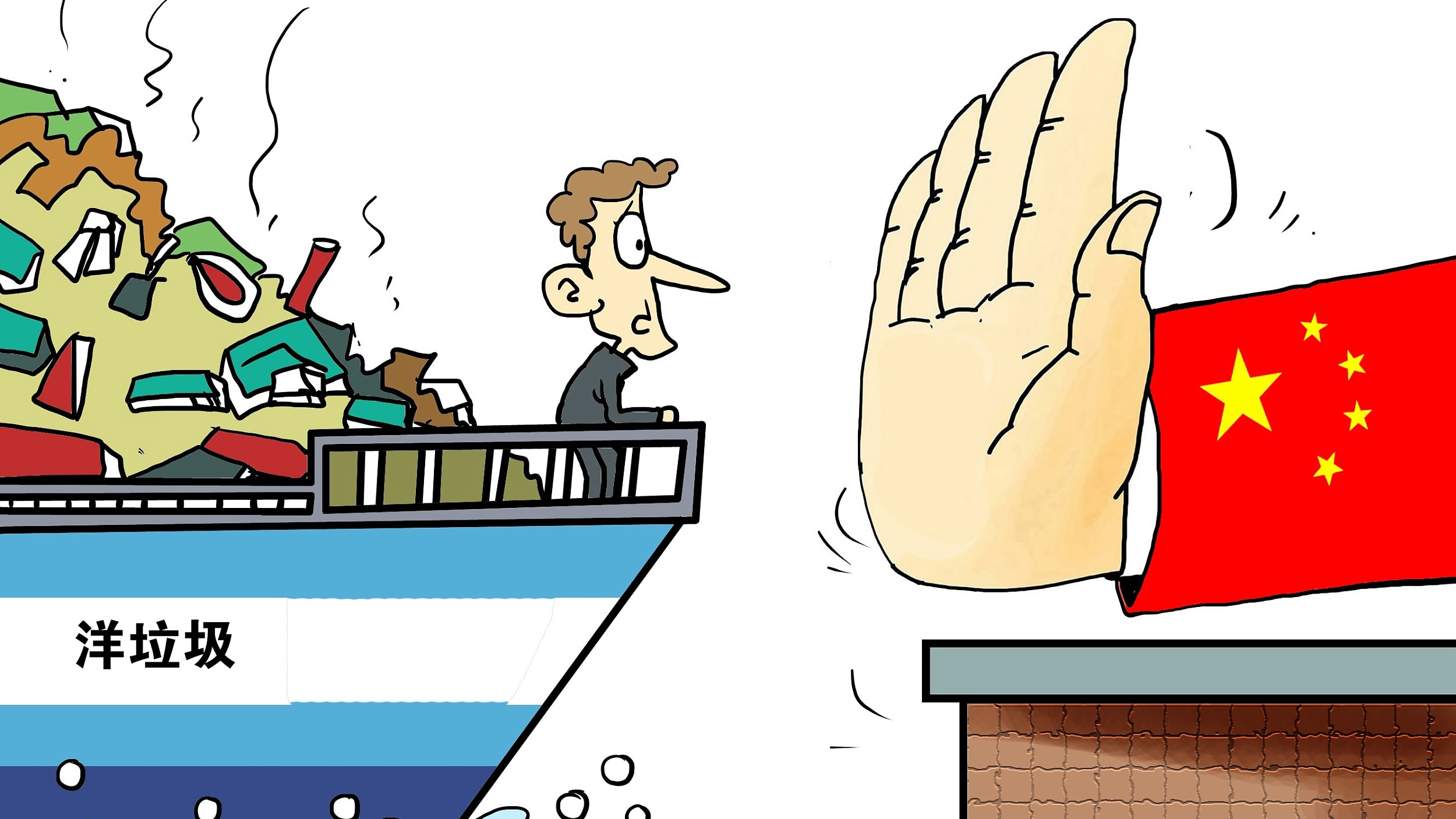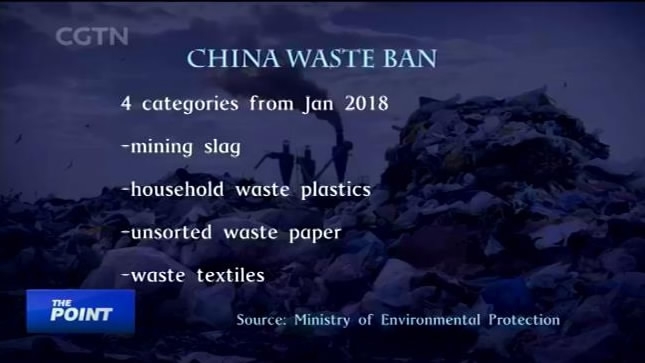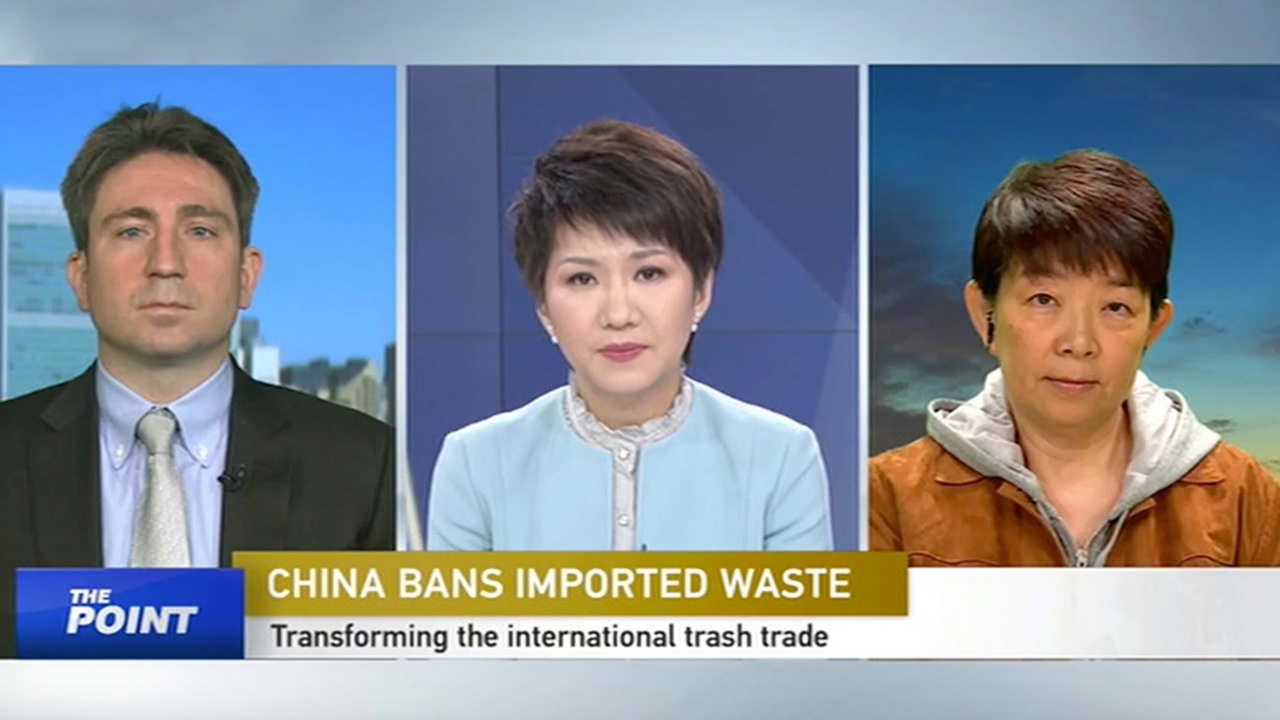
China
16:40, 09-Jan-2018
What will happen after China bans foreign waste?
CGTN

By CGTN’s The Point
For decades, China has been importing trash to power its manufacturing boom. But now the country is discarding its title as the world’s largest importer of trash, as the ban on foreign waste has come into effect, starting January 1st, 2018.
“In the past 20 or more years, China has in a way benefited economically by this imported waste. However at the same time, it has generated pollution and made the environment issue really severe,” said Ruby Chen, CEO & Co-Founder of CNEX Foundation, a private nonprofit organization that supports Chinese independent documentary filmmaking.
Chen is also the producer of Plastic China, an international award-winning Chinese Documentary film released in 2016.

CGTN Photo
CGTN Photo
According to the Ministry of Environmental Protection, 24 types of solid waste under the four categories, including certain types of mining slag, household waste plastics, unsorted waste paper and waste textiles have been banned.
By the end of 2019, China will also ban imports of solid waste that can be replaced with domestic resources.
In 2016 alone, China took in over half of the world’s plastic waste, absorbing 7.3 million metric tons from the US, Europe, and Japan, among other countries. Without China taking in the trash, where will the world’s waste go?
Dan Green, Co-Founder of Recycle That, a US social enterprise focusing on recycling clothes and shoes, among other items, though developed countries will now have to face the problem of recycling the waste domestically.
“The solution is going have to be more sophisticated recycling in the United States and other countries, better sorting, better consumer education so that Americans consumers are sorting their recyclables more carefully.” He continued, “Long term, the only real solution is to consume less and reuse more.”

Green pointed out that there are two reasons behind the US exporting its waste to China. In comparison with handling the waste domestically, shipping the waste from the United States to China is very cheap. And at the same time, “China has a great demand for materials as a way to more cheaply and efficiently manufacture recyclable plastics, cardboard and other products,” he added.
He worries that China’s foreign waste ban would make the waste be diverted into other developing countries which also need the materials and have lower environmental standards. He hoped the improvement of technology would help people tackle the problem more efficiently and create a cleaner environment.
“We need to make sure that what we are doing is sustainable,” Ruby Chen echoed.
The Point with Liu Xin is a 30-minute current affairs program on CGTN. It airs weekdays at 9.30 p.m. BJT (1330GMT), with rebroadcasts at 5.30 a.m. (2130GMT) and 10.30 a.m. (0230GMT).

SITEMAP
Copyright © 2018 CGTN. Beijing ICP prepared NO.16065310-3
Copyright © 2018 CGTN. Beijing ICP prepared NO.16065310-3